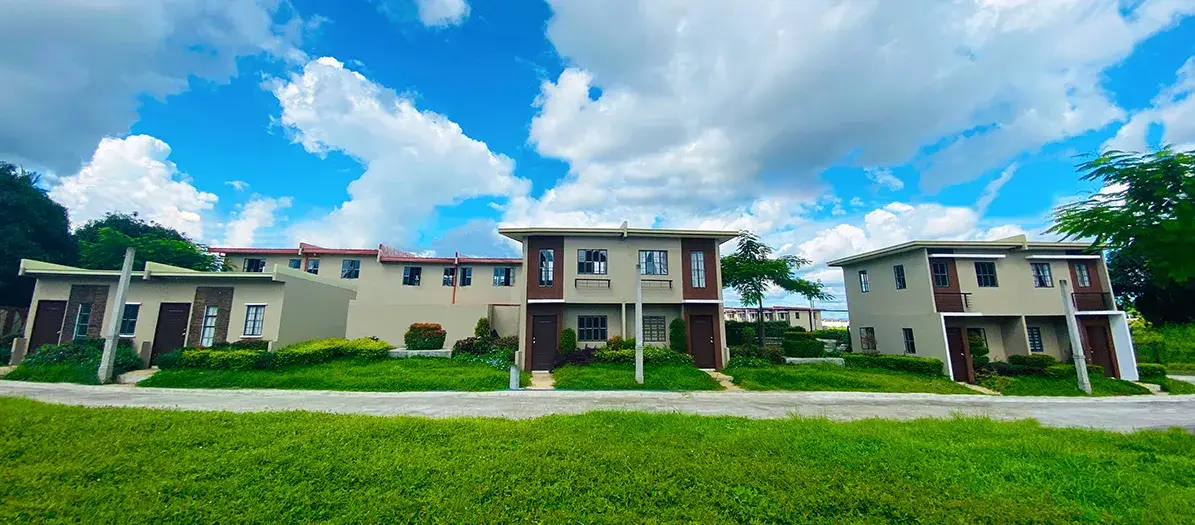The Interconnected Value of Home and Family
5 January 2023
If there is one distinct trait that Filipinos would be enormously proud to tell our foreign guests, it's our being family-oriented.
We put so much value on our family members that we find it difficult to part ways when early adulthood comes; that is, when we are but left with a choice to find a job after graduation, build our own family a few more years later, and inevitably be away from the very people whom we have been living with under one roof for many years.
But the Filipino resolve cannot be easily shaken by obstacles and challenges. When the opportunity to be with our loved ones comes, such as an Overseas Filipino Worker (OFW) being granted paid vacation leaves by his employer to come back home, we don't hesitate on grabbing it. That's how we love family — we define love to mean family.
In this article, allow Lumina Homes to join you in your homesickness if you're reluctantly away from your family, and take some time to reflect and assess family relationships among profoundly family-loving Filipinos.
The Family Structure
There are a few types of family structure, but it typically boils down to four: nuclear family, single-parent family, stepfamily, and extended family.
1. Nuclear family
A mother, father, and children constitute a nuclear family, which is also the traditional family. Nuclear families in present times have become less common due to the growing acceptance of other family structure types, such as single parents, stepfamilies, and same-sex relationships. These are not as prevalent in the past decades.
2. Single-parent family
From the term itself, this family type consists of one parent taking care of one or more children in the absence of the other biological parent. In the past, single-parent families are mostly the result of the death of a spouse, such as a mother dying during childbirth. In present times, single-parent families are often borne out of failed marriages and unintended pregnancies.
3. Stepfamily
This is more common in the United States, where divorces are also quite rampant. As a result, couples remarry and become stepparents to their divorced partner's children, and vice versa. This makes marriages in the present lose their quintessence as a permanent social and legal contract, as more and more people resist staying in an abusive relationship.
4. Extended family
Finally, where most Filipinos could relate: an extended family consists of grandparents, uncles and aunts, as well as cousins. This means that these other relatives live in the same house where the nuclear family lives, or at least are living nearby. This is common among Filipino families, where newlyweds prefer staying than moving out on their own, and where grandparents are taken care of by younger family members.
5 Filipino Family Values Examples
The moral values ingrained in every Filipino are rooted in our very love and respect for the family unit. The following are examples of how family-oriented Filipinos are, and how we regard family life as home itself, and vice versa.
1. Respect for the elderly
The customary use of "po" and "opo" is uniquely Pinoy. We use this to end our sentences as a gesture of respect, as well as a way to respectfully respond to our elders, be it our parents, grandparents, and just about anyone older than us. This is one of the best traditional family values that has remained intact in the Filipino family culture.
2. Love of God
One of the core family values among Filipinos is our spiritual connection to God. Having been colonized by Spain, who introduced Christianity to us, Filipinos are generally God-fearing. This is gestured by prayers being held on every thanksgiving occasion that we celebrate, such as birthdays and important holidays. While less popular now, praying before every meal is still being practiced by devoutly religious families.
3. Hospitality
Filipinos are world-famous for their hospitality. This is highlighted by our being so welcoming of our foreign visitors, whom we greet with a warm welcome whenever they come to visit our islands or our homes. We insist on giving them food and drinks before leaving, and even offer them a place to stay if it's too late to drive or commute at night. We treat acquaintances like family when they are inside our humble homes.
4. Debt of gratitude
Known locally as utang na loob, this is another sign of our strong family values. As an expression of gratitude for our parents who raised us, gave us food and shelter, and worked hard to fund more than a decade's worth of education, we feel obliged to give back, especially financially. If a family member becomes hospitalized, we give our share to ease the financial burden. Sinu-sino pa ba ang magtutulungan kung hindi tayu-tayo rin lang, is a common family value that is frequently spoken aloud in family conversations.
5. Resilience
Finally, Filipino families are resilient. During typhoons, which happen not less than 20 times every year in the Philippines, it is common to see Pinoys sporting a smile in the presence of a media camera. Filipino parents raise their children to become tough adults who won't easily give in during calamitous times. Instead, the entire family encourages each and everyone to remain steadfast and resilient, anchored with the belief that all challenges will be overcome in time. Even if this meant a ravaged home, for as long as the family survived, a typhoon is just something we get used to, and something that we expect to rise above from.
Home Is Where the Family Is
As they say, a house is not necessarily a home. A house is just a building, whereas a home is a feeling, and that feeling is family — a group of people you'd love to come home to when you are overcome with negative emotions.
Positive family relationships involve children not hesitating to make their parents their first resort to share their problems with. In return, parents serve as willing listeners to their children's stories of heartbreak, happiness, and longings.
Irrespective of your present family structure, most of us wouldn't debate the value of home and family, and how these two are distinctly interconnected.
At Lumina Homes, we recognize the public sentiment that a home shouldn't just be an inanimate building, but rather an intimate place where the family gathers, communicates, eats, prays, and stays together. If you want such a place for your family, Lumina Homes in Rosario Batangas is an ideal place that caters to you and your family's lifestyle needs.
As a prime provider of affordable house and lot for more than 10 years, we commit to continue serving Filipino families and responding to their demand for a more affordable house and lot for sale, but without sacrificing the quality of the properties. Seal your real estate investment with Lumina Homes and achieve your dream house and lot in the Philippines that you can truly call your home.
Loan Calculator
Try Lumina Homes' loan calculator and get an estimate computation for your preferred Lumina property and home model.













